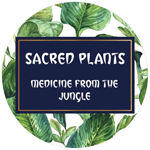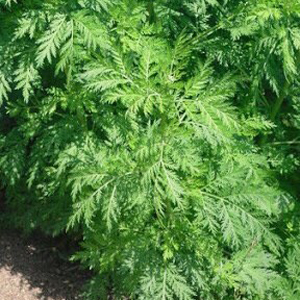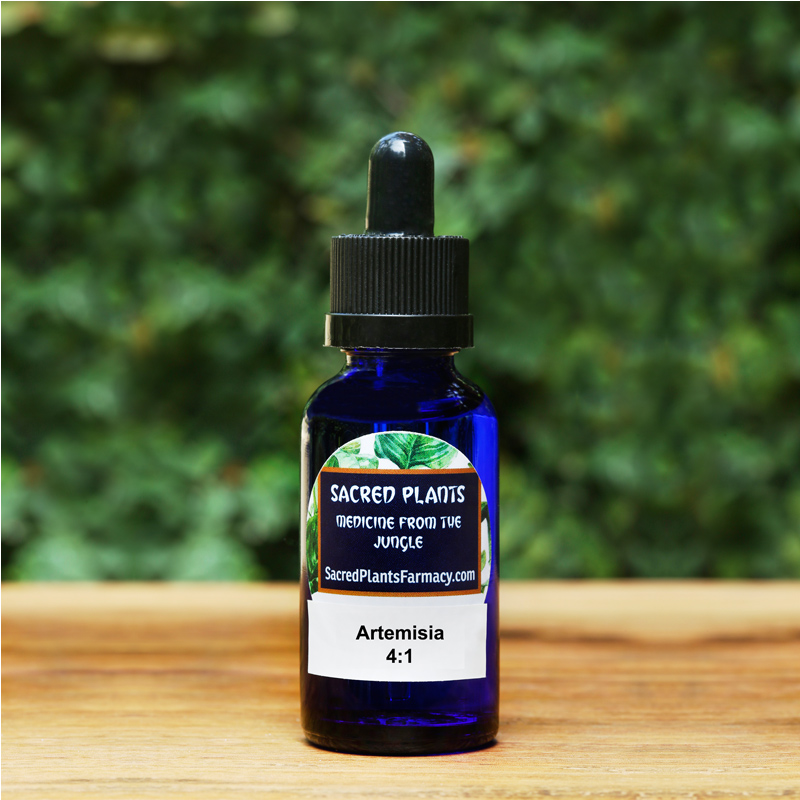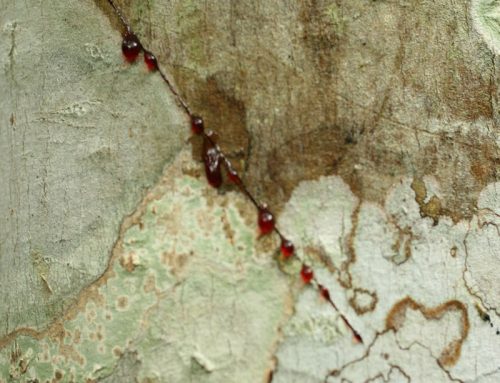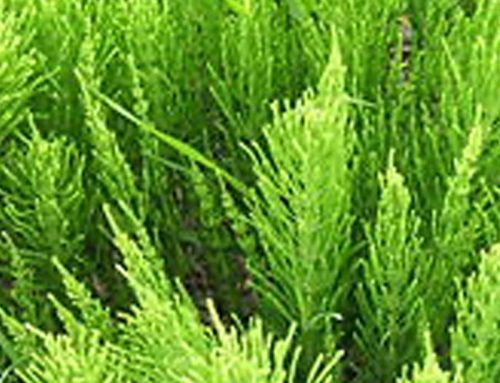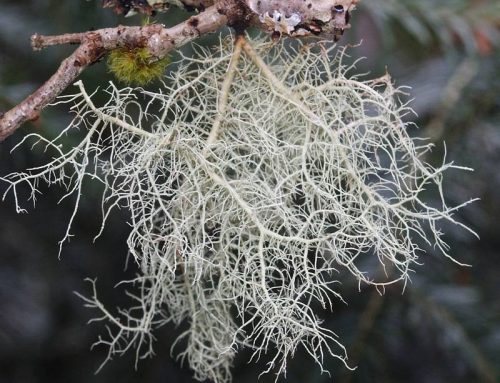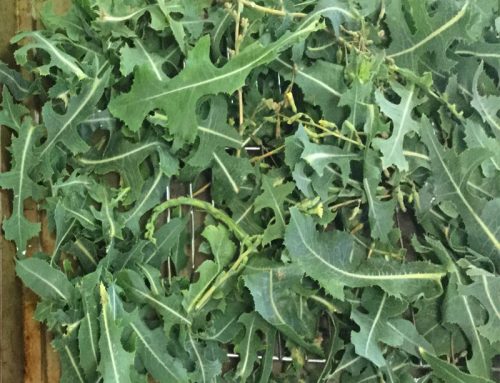Artemisia Annua
- Attacks cancer and malaria cells
- Soothes joint pain
- Reversing breach birth position (moxibustion)
- Alleviate intestinal problems like Crohn’s
- Menopause relief
- Kills parasites
- Antimicrobial & Antibacterial
- Part of effective SIBO protocol
- Currently being studied for Covid-19 treatment.
Wormwood’s biologically active compounds include:
- acetylenes (trans-dehydromatricaria ester, C13 and C14 trans-spiroketalenol ethers, and others)
- ascorbic acid (vitamin C)
- azulenes (chamazulene, dihydrochamazulenes, bisabolene, camphene, cadinene, sabinene, trans-sabinylacetate, phellandrene, pinene and others)
- carotenoids
- flavonoids (quercitin 3-glucoside, quercitin 3-rhamnoglucoside, spinacetin 3-glucoside, spinacetin 3-rhamnoglucoside, and others)
- lignins (diayangambin and epiyangambin)
- phenolic acids (p-hydroxyphenylacetic, p-coumaric, chlorogenic, protocatechuic, vanillic, syringic and others)
- tannins
- thujone and isothujone
- sesquiterpene lactones (absinthin, artabsin, anabsinthin, artemetin, artemisinin, arabsin, artabin, artabsinolides, artemolin, matricin, isoabsinthin and others)
Benefits
Whether you’re using wormwood tea, extract, tincture or ointment, the benefits of this therapeutic herb are vast.
1. Beats Malaria
Malaria is a serious disease caused by a parasite that is transmitted by the bite of infected mosquitoes and invades human red blood cells. Artemisinin is an extract isolated from the plant Artemisia annua, or sweet wormwood.
Artemisinin is an herbal drug that’s the most powerful antimalarial on the market. It’s known for quickly reducing the number of parasites in the blood of patients with malaria. The World Health Organization recommends artemisinin-based combination therapies as first-line treatment for uncomplicated P. falciparum malaria.
Recent experiments have shown that artemisinin is effective against the malaria parasite because it reacts with the high levels of iron in the parasite to produce free radicals. The free radicals then destroy the cell walls of the malaria parasite.
2. Fights Cancer Cells
According to recent studies, artemisinin can battle iron-enriched breast cancer cells similar to the way it eliminates malaria-causing parasites, making it a potential natural cancer treatment option for women with breast cancer.
Cancer cells can also be rich in iron since they commonly soak it up to facilitate cell division. Researchers in a 2012 study tested samples of breast cancer cells and normal breast cells that had first been treated to maximize their iron content. The cells were then treated with a water-soluble form of artemisinin, an extract of wormwood.
Results were quite impressive. The normal cells showed little change, but within 16 hours, almost all of the cancer cells were dead and only a few normal cells were killed. Bioengineer Henry Lai believes that because a breast cancer cell contains five to 15 more receptors than normal, it absorbs iron more readily and hence is more susceptible to artemisinin’s attack.
3. Gets Rid of Parasites
Wormwood is used to eliminate intestinal worms, including pinworms, roundworms and tapeworms. Pinworms are the most common worm infection in the U.S. with pinworm eggs spread directly from person to person. Roundworms, or nematodes, are parasites that also infect human intestines, and tapeworms are long, flat worms that infect animal and human intestines. Sacred Plants Farmacy’s Parasite Cleanse contains 30% Artemisia (along with 30% Black Walnut, 30% Clove and 10% Chanca Piedra)
A 2018 animal study published in the Journal of Helminthology indicates that wormwood induced worm paralysis, death and ultrastructural alternations.
And a study conducted in Sweden shows that for the purpose of deworming farm animals, a combination of wormwood, mugwort, chicory and common tansy are believed to have anti-parasite properties.
4. Treats Crohn’s Disease
In Germany, a double-blind study examined the effectiveness of an herbal blend containing wormwood at a dose of 500 milligrams three times per day versus a placebo over 10 weeks in 40 patients suffering from Crohn’s disease who were already on a steady daily dose of steroids.
This initial stable dose of steroids was maintained until week 2, after that a defined tapering schedule was started so that by the beginning of week 10 all the patients were steroid-free.
Researchers found that there was a steady improvement in Crohn’s disease symptoms in 18 patients (90 percent) who received wormwood in spite of the decrease of steroids. After eight weeks of treatment with wormwood, there was almost complete remission of symptoms in 13 (65 percent) patients in this group as compared to none in the placebo group. This remission lasted until the end of the observation period, which was 20 weeks (12 weeks later), and the addition of steroids was not necessary.
The results were truly impressive and suggestive of wormwood being able to decrease or eliminate the need for steroids in Crohn’s disease patients. Additionally, results indicate that wormwood has positive effects on mood and quality of life, which is not achieved by other standard Crohn’s disease medications.
5. Contains Antimicrobial and Antifungal Abilities
In vitro studies have shown that the essential oils of wormwood have antimicrobial activity. Research published in the Journal of Agricultural and Food Chemistry suggests that wormwood oil exhibits a broad spectrum of antimicrobial activity against several bacterial strains, including E. coli and salmonella.
Every year, salmonella is estimated to cause 1 million food-borne illnesses in the U.S. alone, with 19,000 hospitalizations and 380 deaths. E. coli is another concerning type of bacteria that can cause a range of issues from diarrhea to urinary tract infections to pneumonia and other illnesses.
Not only can wormwood kill bacteria, but it’s also been shown to kill fungi. Research shows that essential oil distilled from the aerial parts of Artemisia absinthium inhibited the growth of a very broad spectrum of tested fungi (11 to be exact). The wormwood essential oil also showed antioxidant properties during testing.
Another study published in Planta Medica concludes that A. absinthium oil inhibits the growth of Candida albicans. This is the the most common type of yeast infection found in the mouth, intestinal tract and vagina, and it may affect skin and other mucous membranes.
6. Treats SIBO
SIBO is the acronym for “small intestinal bacterial overgrowth,” defined as excessive bacteria in the small intestine, or small bowel. While bacteria naturally occur throughout the digestive tract, in a healthy system, the small intestine has relatively low levels of bacteria; it’s supposed to be at highest concentrations in the colon.
Many people turn to natural and alternative treatments when it comes to problems with their gastrointestinal health, and for good reason. Studies show that herbal remedies like wormwood tea or capsules are as good or even better at fighting small intestinal bacterial overgrowth or SIBO symptoms.
Today’s typical treatment of SIBO is limited to oral antibiotics with varying rates of effectiveness. A 2014 study had 104 patients who tested positive for newly diagnosed SIBO take either a high dose of rifaximin or an herbal therapy daily for four weeks.
The herbal products were specifically chosen because they contained antimicrobial herbs like wormwood, oregano oil, thyme and berberine extracts, which have been shown to provide broad-spectrum coverage against the types of bacteria most commonly involved in SIBO.
Of the patients who received herbal therapy, 46 percent showed no evidence of SIBO on follow-up tests compared to 34 percent of rifaximin users. Adverse effects reported among those taking rifaximin included anaphylaxis, hives, diarrhea and C. difficile colitis, while only one case of diarrhea and no other side effects were reported in the herbal therapy group.
The study concluded that herbal therapies are at least as effective as rifaximin for eradication of SIBO. Additionally, the herbal therapy with wormwood appears to be just as effective as triple antibiotic therapy for individuals who don’t respond to rifaximin.
7. Artemisia annua is currently being studied for Covid-19 treatment.
How to Use
Tincture dose: 3-5 drops twice a day for no more than 4 weeks.
Side Effects, Allergies and Drug Interactions
Wormwood herb is not meant for long-term use. Make sure you don’t exceed recommended doses because excessive consumption could be highly toxic. You may use wormwood in dried form, which contains little, if any, of the volatile oil thujone.
Don’t take this herb in any form if you’re pregnant or breast-feeding. There have been documented abortifacient and emmenagogue effects of wormwood.
If you’re allergic to ragweed and other plants in the Asteraceae/Compositae family, then wormwood may cause an allergic reaction.
If you have porphyria (a group of disorders that result from a buildup of natural chemicals that produce porphyrin in your body), then you should know that the thujone present in wormwood oil might increase your body’s production of chemicals called porphyrins, which could make your porphyria worse.
If you have epilepsy or any other seizure disorder, speak with your doctor before using this herb. The thujone in wormwood can cause seizures, especially in people who have a tendency toward seizures.
Wormwood is not recommended for people with kidney disorders. The oil might cause kidney failure. If you have kidney concerns, don’t take this herb before talking with your doctor.
It’s not advised to use the essential oil in aromatherapy since it contains an extremely high amount of thujone, which is a convulsant and neurotoxin.
Be cautious and speak with your doctor before combining wormwood with any anticonvulsant, which is a medication used to prevent seizures. Since these medications and wormwood can both affect brain chemicals, this herb may decrease the effectiveness of anticonvulsants.
